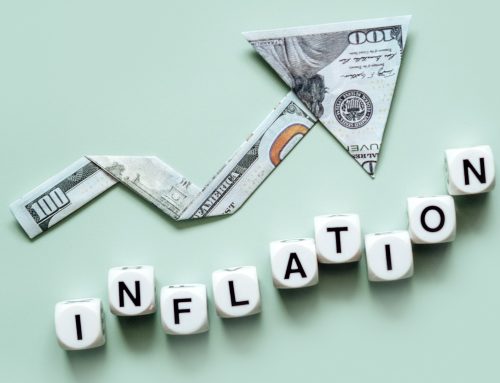
Letter to My Daughters: On Financial Freedom
Your Grandpa and your Uncle Jeff have written a LOT about how to work, save, and invest. So you should read Grandpa’s book[1] and Uncle Jeff’s article because I’m not going to repeat what they have already written. Instead, I want to talk about some fundamental principles that I think are the core for being free financially. If you really own these ideas everything else will fall into place.
1. Be a profit center. Before you can save a nickel (or a dime, or better yet a quarter) you have to make a dollar. And at your age, that’s probably going to mean working for someone else. You may work for yourself at some point, and I’ll write about that in #4. But when you are first getting started you will probably work for someone else, and you need to make more for that person than it costs that person to hire you. That’s what I mean by a profit center.
How much do you cost your employer? Ask them and find out, but your Grandpa authored an article that can help you get started. How much do you make for your employer? That’s not always easy to measure, but you should try to have some idea and make sure that you make him 5% more than you cost him. Every employer I know needs that nickel for it to be worth staying in business.
2. It ain’t what you make, it’s what you spend. John Templeton is a legendary investor, and some years ago a writer interviewed him and asked him the secret to his wealth. I think the writer expected some kind of stock tip, but what he got was sound advice for all of us. John Templeton said that the way he became wealthy was to save 50 cents out of every dollar he made for the first twenty years after college.
Think about that. And I’ve seen that repeatedly with my clients. People that are financially free never spend a nickel without getting a dime’s worth of value from it. They’ll spend money, but they save first, spend second, and ALWAYS make sure they spend less than they make. I’ll bet you can earn less than $60,000 per year and still retire comfortably by adhering to this principle. Conversely, if you make a million dollars a year, but find a way to SPEND it all, plus some, you may never retire And certainly not comfortably. That is NOT financial freedom.
Your Mom and I control our spending by thinking in terms of necessities, conveniences, and luxuries. You’ll find the necessities of life are cheap, the luxuries can get expensive. So start out by limiting (or even eliminating) the luxuries while you save as much as you can as early as you can. We have always paid ourselves first through payroll deductions and automatic savings from our checking accounts; and every time we paid off a loan, earned a pay raise, or received a bonus or a gift we added at least half of that money to our savings and investments.
Dave Ramsey has very good ideas about budgeting and living on less than you make. Borrow his books from the library, read them, and follow his advice.[2]
3. Start saving early, compound interest takes time to work. I already mentioned saving as much as you can as early as you can, and here’s why. Use an online Compound Interest Calculator and pick any interest rate you like, 3% or 5% or 8%.[3] Now look at how one dollar a year grows for 10 years, then 20, then 40. Even at low interest rates, the compounding is powerful IF YOU START EARLY ENOUGH to have your money working for 40 years. Imagine what that would do if you can save $5,000 or $10,000 a year starting in your early twenties. That’s why not spending everything you make and having money to save is so important. Numbers 2 & 3 work hand in hand, one does you little good without the other.
4. Own, don’t lend. The book “The Millionaire Next Door” documents how most people with serious money earned it by starting and owning their own business (and then not spending everything they earned). The next best way is to partner with those people or own a piece of the business they are running. To my recollection, nobody but banks get wealthy by lending people money; and even they rely on government bailouts. I hate to tell you, but the government is not bailing you out any time soon.
The same lessons apply to you. You’ll probably make the most working for yourself because you work harder when your work for yourself and you are more careful spending your own money.
If you aren’t going to start and run your own business, then find a way to partner with people that do. One easy way to do that is to invest in common stocks, and we’ll talk more about that in another letter. Just remember, stocks represent ownership in a business; bonds represent lending money to a business. From 1928-2023 stock ownership has earned an average of 9.80%; bonds have earned 6.68%.[4] Go to your Compound Interest Calculator and see what that difference will make to you over the next 20, 30, and 40 years. Own, don’t lend.
5. Price always matters. As Grandpa says in his Maxims “A good product can be a bad deal if the price is wrong. How do you know a good price? Shop around and be willing to walk away from any “deal.”” This is true for an education, a house, a car, clothes, food, etc., etc. It’s also true when you are looking to buy a business, either outright or through the stock market. Grandpa wrote a good primer how to buy cars, and stocks, in his article “Fund Your IRA, or How to Retire Wealthy by Driving Used Cars.” Your Mom has become an excellent buyer of used cars, and pianos, by following the advice in his article. And we’ve done well by funding our IRAs and investing them with a money manager that shares our conclusion that price always matters.
Those are the five principles that I think are key to financial freedom. I’ll write more about planning, and investing, and taxes; but without a thorough grasp of these five ideas all the plans in the world won’t do you much good. There’s a lot more that we can talk about for each of these items, so I hope you’ll come to me with your thoughts, ideas, comments, and questions.
Love you,
Dad
[1] http://www.amazon.com/Rons-Road-Wealth-Insights-Investor/dp/0470137525
[2] http://www.daveramsey.com/store/books/cBooks.html?showgrid=true
[3] https://www.investor.gov/financial-tools-calculators/calculators/compound-interest-calculator
[4] https://barbarafriedbergpersonalfinance.com/historical-stock-and-bond-returns/
The opinions expressed are those of Tony Muhlenkamp of Muhlenkamp and Company and are not intended to forecast future events, guarantee future results, or offer investment advice.








